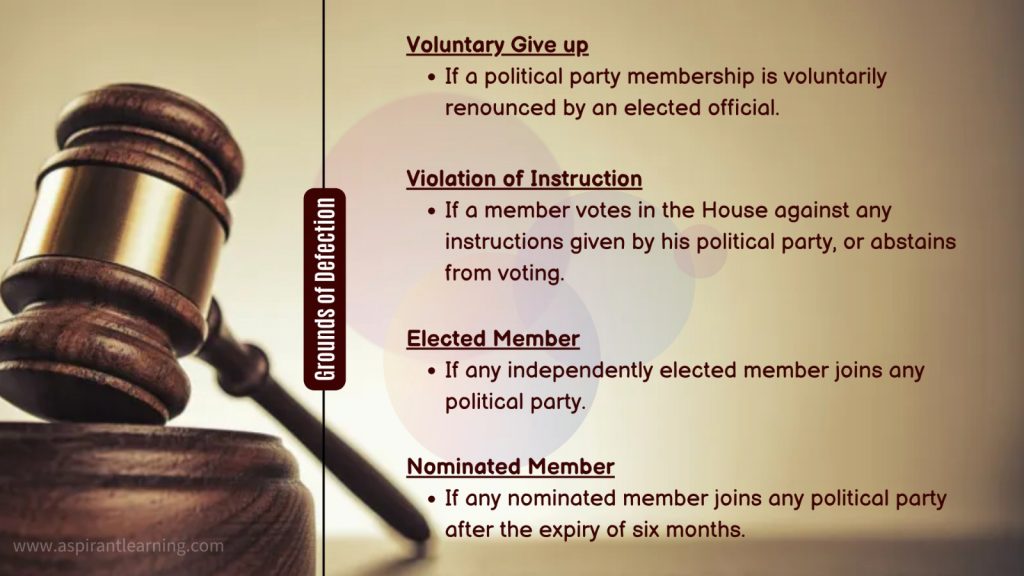News Highlight
The central government does not see the need to make changes to the anti-defection law.
Key Takeaway
- A five-judge Bench of the Supreme Court of India is presently hearing a set of cases popularly known as the “Maharashtra political controversy cases”.
- A faction led by Eknath Shinde then joined hands with the Bharatiya Janata Party (BJP) to form the new ruling coalition.
Anti-Defection Law
- About
- Its goal was to keep governments stable by deterring MPs from switching parties.
- It establishes the procedures for disqualifying elected members for defecting to another political party.
- It enables a group of MPs/MLAs to join another political party without incurring the defection penalty.
- Furthermore, political parties are not penalised for soliciting or tolerating defecting legislators.
- The 91st Constitutional Amendment Act of 2003 modified this.
- At least two-thirds of a party’s members must favour a “merger” for it to be legal.
- Members disqualified under the law can run for a seat in the same House from any political party.
- The decision on disqualification on the premise of defection is referred to the Chairman or the Speaker of such House, which is subject to ‘Judicial review‘.
- The statute does not specify a time limit for the presiding officer to rule on a defection case.
Issues with Anti-Defection Law
- Ambiguity about Party
- It is unclear whether the initial political party refers to the national or provincial parties.
- The claim about the merger
- A merger occurs only when an original party unites with another political party.
- Two-thirds have approved this merger of the legislature party’s members.
- Only when these two conditions are met can a group of elected members claim exemption from disqualification due to merger.
- No Recognition of Split
- The 91st amendment introduced an exception for anti-defection verdicts in the anti-defection statute.
- However, the amendment does not recognise a ‘split’ in a legislature party and instead recognises a ‘merger’.
The Tenth Schedule at present
- There have been numerous instances of governments being “toppled” mid-term after a faction within the ruling party or coalition turns against it.
- The well-documented growth of “resort politics” demonstrates the power politics of intra-party dissent.
- Party leaders keep their “flock” confined to luxury vacation spots.
- Political acts by state governors over swearing-in ceremonies and the timing of floor tests, mass resignations to trigger a new election
- Speakers’ partisan behaviour in declining to rule on disqualification petitions or acting in an unreasonable hurry to do so.

Way forward
- Make the president/Governor the decision maker
- Make the president/Governor the decision maker concerning disqualification subject to binding advice from the Election Commission on the lines of disqualification.
- It is based on the Representation of Peoples Act’s provisions regarding the office of profit.
- Dinesh Goswami Committee recommendations
- The disqualification should be only for cases such as;
- Member giving up the membership of his political party voluntarily.
- Member voting or abstaining from voting as opposed to party directions.
- The disqualification should be only for cases such as;
Pic Courtesy: freepik
Content Source: The Hindu



